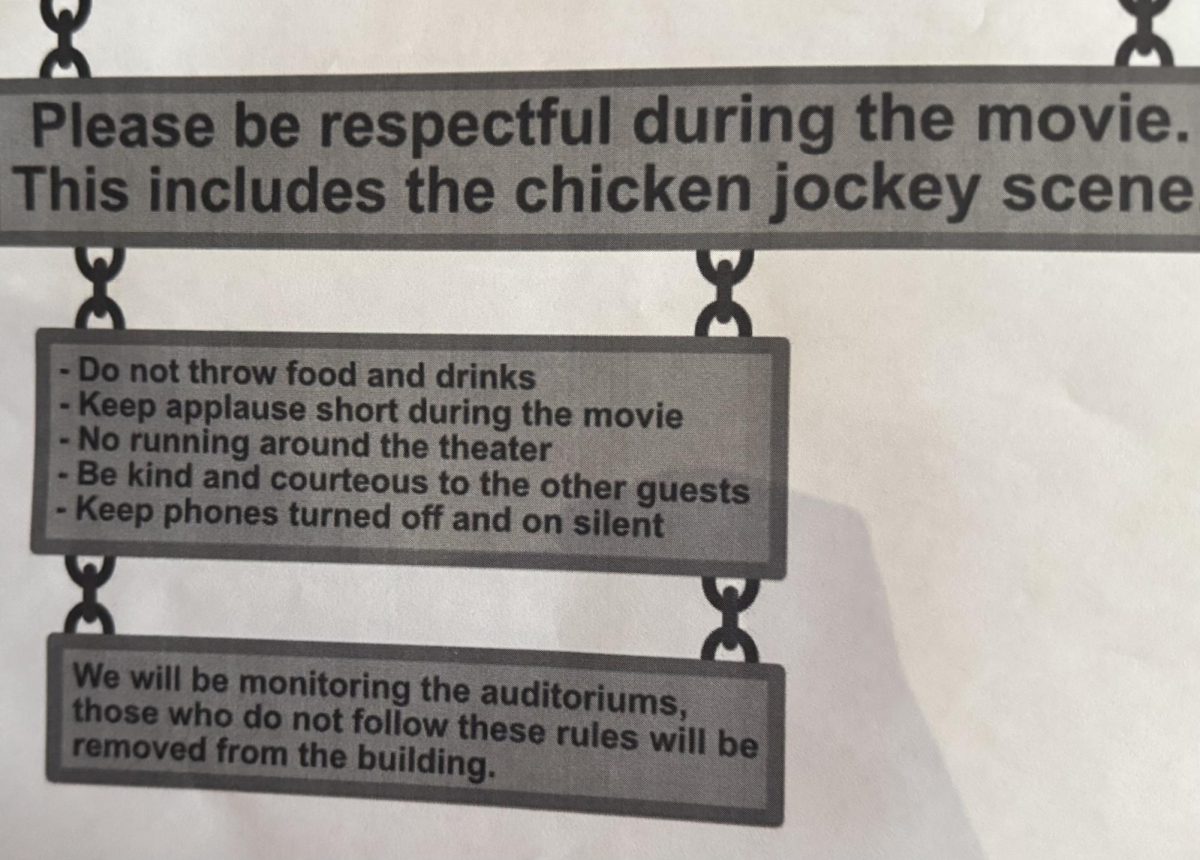Beto O’Rourke is mounting a presidential campaign without policy substance. The former three-term Texas representative speaks in platitudes about coming together to fight for better things; the nature of those things and how we will fight for them are yet to be determined. He acknowledges the impact of climate change and likes the concept of a Green New Deal, but maintains that Texas should lead the nation in producing oil and gas. On health care, he has taken every position possible for a Democrat. Recently, he renounced his previous support for single-payer national health insurance and endorsed a House bill that would preserve private insurance.
O’Rourke eloquently denounces Donald Trump’s proposed wall on the US-Mexican border but offers no positive vision on immigration policy. He observes that visa overstays, not border crossings, are the primary cause of undocumented immigration. So how should we address visa overstays? When pressed by The Washington Post, O’Rourke gave a rambling answer about the importance of “nonviolently resolv[ing] our differences.” Perhaps, O’Rourke would prefer to debate the harmonization of the US and Mexico’s visa policies.
O’Rourke clearly prefers debates to policies. Consider his suggestion that Congress end the 2001 Authorization for Use of Military Force Against Terrorists (AUMF), which he correctly describes as “a blank check for endless war.” Lest you think he is a critic of the national security state and its imperial adventures, he concluded that, “if we need a new [AUMF], let’s debate it.” It is a clever trick for a modern Democrat trying to get ahead without principles: use the language of the left to identify a problem, then suggest the solution is a “national debate” or “conversation.”
If Beto O’Rourke lacks a coherent policy platform, how should we evaluate him? One approach is to dismiss him as another regrettable example of the American celebrity politician and his campaign as a vanity project — a narcissist’s attempt to extend his moment in the limelight. That approach appeals to those of us who care about policy, and its analysis of O’Rourke’s character and campaign appears broadly correct.
As a means of predicting a candidate’s behavior in office, however, policy platforms are of limited use. Institutional factors, like a Republican Senate and right-wing judiciary, will limit any Democratic president’s ability to enact their agenda in 2021, as will exogenous events. If a recession occurs this year or the next, as predicted by various economists, for instance, a new Democratic president will have to pass a stimulus plan rather than their proposed universal child care program or immigration reform. Likewise, the consequences of climate change will demand answers, even if a Democratic president would prefer to work on health care. Furthermore, candidates may endorse various policies in the abstract, whether Medicare for All or reparations for black Americans, while having very different ideas about what those policies mean in practice.
Alternately, you could pick your candidate based on factors unrelated to policy, such as electability, likeability or identity. I suspect this is what most American voters — and most O’Rourke supporters — do. You might vote for O’Rourke because you think his strong showing as a Democrat in Texas indicates he can beat Trump nationally. You might find his past membership in a punk rock band and present antics with a skateboard in a Whataburger parking lot cool. If you are a white, college-educated professional who values rhetorical commitment to diversity and progress, O’Rourke is just like you. But the shortcomings of judging candidates based on electability, likeability or identity are obvious. First, none of us can say who can or cannot win elections. Last time around, a reality show host of dubious mental acuity, credibly accused of sexual misconduct, won the presidency. Second, politicians’ likeability and identity say little about how they will wield power to advance the common good or even your individual good.
The best approach to evaluating political candidates is to examine their moral and political visions. Put simply, what do they think a just society looks like, and what steps are they willing to take to achieve that society? Policy platforms and past careers can help us answer these questions, but even candidates who have thin resums and dislike policy details can sketch a compelling moral vision and a way to get there. O’Rourke has done neither. We are in “a moment of maximum peril,” according to his announcement video, but there is no enemy save division itself. We are also in a moment of “maximum potential,” but there is no higher purpose save unity.
One anecdote neatly illustrates O’Rourke’s lack of moral vision and failure to understand politics. In 2018, O’Rourke refused to endorse the Democrat challenging Will Hurd, a Republican congressman from Texas and O’Rourke’s personal friend. When asked on CNN if he would reciprocate in 2020, Hurd said he intends to “vote for the Republican nominee.” Hurd has a vision for America and understands that politics is about wielding power to achieve that vision. O’Rourke has some humane impulses but no clear vision. As a result, his politics are superficial, chiefly concerned with being liked by his colleagues and the public.








Liam Arnold • Sep 5, 2019 at 3:46 am
It is really a nice and useful piece of information. I am glad that you shared this useful info with us. Please keep us informed like this. Thank you for sharing.
click here • Aug 23, 2019 at 9:29 am
A friend of mine advised this site. And yes. it has some useful pieces of info and I enjoyed scaning it. Therefore i would love to drop you a quick note to express my thank. Take care
Badosa • Aug 22, 2019 at 1:45 am
Just stumble upon your blog from from time to time. nice article
Shelton Sephton • Aug 14, 2019 at 5:17 am
I must thank you for the efforts you have put in penning this site. I really hope to check out the same high-grade content from you later on as well. In fact, your creative writing abilities has encouraged me to get my own, personal website now 😉
Edmund Eastlick • Jul 22, 2019 at 1:10 pm
Mass parsite http://bit.ly/2W9CVkn
Stephany Casteneda • Jul 18, 2019 at 9:53 am
Hi, awesome work. I really appeaciate the information you are providing through your site, i have alwasy find it helpful. Keep up the amazing work.
uluvopi • Jul 9, 2019 at 9:41 pm
dGhlbWFjd2Vla2x5LmNvbQ## valtrex for sale valtrex viagra buy in canada generic viagra 100mg price ventolin ventolin without rx viagra for women 2010 viagra.com levitra 20 levitra.com jsiarayi
jizuhice • Jul 9, 2019 at 9:24 pm
dGhlbWFjd2Vla2x5LmNvbQ## drupal viagra viagra sales prednisone for dogs canada online prednisone accutane buy accutane tadacip phetanol tadacip generic vibramycin for sale vibramycin for sale afocef
iaewideci • Jul 9, 2019 at 9:23 pm
dGhlbWFjd2Vla2x5LmNvbQ## super kamagra online buy super kamagra glucophage for sale glucophage without dr prescription cialis.com cialis viagra soft viagra soft online cialis dosage 20mg tadalafil 20mg cheap kamagra viagra super force cialis soft for sale cialis soft cialis 20mg price cialis.com generic cialis from india buy cialis online iwuhnayuk
adufeja • Jul 9, 2019 at 9:17 pm
dGhlbWFjd2Vla2x5LmNvbQ## cialis cialis 5 mg eriacta eriacta diprospan wiki cialis black for sale cialis black no prescription cialis price cialis price retin a cream renova ecuador valtrex without dr prescription valtrex no prescription kamagra europa buy viagra online uzeejveha
iguxilugo • Jul 9, 2019 at 9:13 pm
dGhlbWFjd2Vla2x5LmNvbQ## buy cialis online pharmacy pharmacy levitra price cheapest levitra 20mg levitra 20 mg buy levitra buy cialis online cialis 20mg lowest price cialis 20mg cheap cialis viagra for sale 100 mg viagra lowest price cialis super active for sale cialis super active generic buy viagra online canada viagra osolone
imdagi • Jul 9, 2019 at 9:08 pm
dGhlbWFjd2Vla2x5LmNvbQ## cialis 20 mg price images cialis amoxil 500 mg buy order amoxicillin discount rulide rulide order now what is viagra wiki viagra 100mg brand cialis lowest price buy brand cialis oprogego
uqekokiuf • Jul 9, 2019 at 9:07 pm
dGhlbWFjd2Vla2x5LmNvbQ## price of cialis 20mg price of cialis 20mg viagra brand copidogrel indianschoolgirlsphoto viagra brand copidogrel flexeril and methadone interactions drug interactions ambien and flexeril viagra viagra propecia propecia online rulide online rulide online erehak
aciwisuyu • Jul 9, 2019 at 4:31 pm
dGhlbWFjd2Vla2x5LmNvbQ## cialis coupon cialis coupon buy prednisone onlone prednisone without prescription discount ventolin inhaler ventolin inhaler online temovate for sale generic temovate prednisone 20mg prednisone no prescription discount viagra cialis levitra online canada buy viagra online canada cheapest price on cialis 20 cheapest price for cialis cialis coupon cialis upumiwoc
eqidecir • Jul 9, 2019 at 3:57 pm
dGhlbWFjd2Vla2x5LmNvbQ## yoefup-a.anchor.com [URL=http://mewkid.net/generic-cialis/#yoefup-u]yoefup-u.anchor.com[/URL] http://mewkid.net/generic-cialis/#yoefup-t http://mewkid.net/generic-cialis/#yoefup-t http://mewkid.net/generic-cialis/#yoefup-t http://mewkid.net/generic-cialis/#yoefup-t http://mewkid.net/generic-cialis/#yoefup-t http://mewkid.net/generic-cialis/#yoefup-t http://mewkid.net/generic-cialis/#yoefup-t http://mewkid.net/generic-cialis/#yoefup-t oqhomapv
eebest8 • Jul 6, 2019 at 7:10 pm
“Hey There. I found your blog using msn. This is a really well written article. I will be sure to bookmark it and come back to read extra of your useful info. Thanks for the post. I will certainly comeback.”
Sindy Hauenstein • May 23, 2019 at 3:19 pm
I completely agree with your opinion on this subject and look forward to new posts and comments here at themacweekly.com. Thanks!
Katerine Bakalars • May 13, 2019 at 9:14 am
5/13/2019 In my view, themacweekly.com does a great job of dealing with topics of this kind. While frequently intentionally contentious, the material posted is more often than not well researched and stimulating.
Laurinda Sexson • May 11, 2019 at 7:57 am
I’m pleased with the way that themacweekly.com deals with this sort of issue. Usually to the point, sometimes controversial, always well-researched and more often than not quite challenging.
Marx Warsing • May 10, 2019 at 6:25 pm
I’m pleased by the manner in which themacweekly.com deals with this sort of issue. Generally to the point, often contentious, without fail thoughtful and more often than not quite challenging.